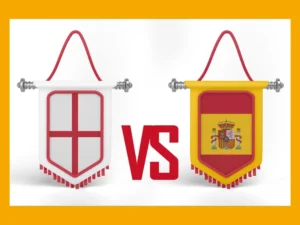Cinema is one of the most entertaining and effective tools for learning a language like Spanish. At LAE Madrid, we believe that watching movies not only enhances your vocabulary but also improves your listening comprehension while immersing you in the Spanish-speaking world. In this blog, we’ll help you discover key cinematic vocabulary and essential expressions that will make watching Spanish-language films both educational and fun!
1. Film Genres in Spanish: Learning Vocabulary Through Storytelling
Understanding film genres is the first step to navigating the world of cinema. Knowing this vocabulary helps you choose your favorite Spanish movies and engage in conversations about them with confidence. Here are a few popular genres:
- Comedia (Comedy): Perfect for a good laugh.
- Drama: Filled with emotional depth and character development.
- Ciencia ficción (Science Fiction): Imaginative stories about the future and alternate realities.
- Terror (Horror): Get ready for a thrilling experience!
Every genre comes with its own set of specific terms, so learning Spanish through a variety of genres helps diversify your language skills while having fun.
2. Film Professionals: Learn About the Heroes Behind the Camera
Cinema is a collaborative art form, and behind every great movie is a team of professionals working to bring it to life. Learning the vocabulary related to film roles allows you to discuss movies more intelligently:
- Director: The visionary who guides the film.
- Producer: Ensures the movie has the resources to come to life.
- Scriptwriter: The one who writes the story and dialogue.
These terms are essential for understanding the filmmaking process and being able to talk about the “unsung heroes” behind the scenes.
3. The Filmmaking Process: Key Terms in Spanish
If you want to go deeper into the process of making a movie, there are several important Spanish terms to learn. These are used during the filming process:
- Guion (Script): The text that guides the actors’ performance.
- Rodaje (Filming): The action of shooting the movie.
- Claqueta (Clapperboard): Used to mark the start of a scene.
By familiarizing yourself with these terms, you’ll gain a deeper appreciation for what goes on behind the camera and how a movie is brought to life.
4. Why Cinema is an Effective Way to Learn Spanish
Watching movies in Spanish not only helps you improve your listening skills but also allows you to pick up on colloquial expressions and cultural nuances. At LAE Madrid, we encourage our students to watch films in the original Spanish language with subtitles. This combination will improve your vocabulary and auditory comprehension while exposing you to real-life conversations.
Can’t decide what to watch? We recommend checking out our curated list of 34 films for Spanish learners. These films are not only entertaining but also serve as an excellent educational resource. What’s your favorite Spanish-language movie? We’d love to hear your thoughts!
Conclusion: Cinema as a Learning Tool
Cinema offers a unique way to immerse yourself in the Spanish language while enjoying rich stories and diverse cultures. By exploring different genres, learning key cinematic vocabulary, and watching movies in Spanish, you’ll improve your language skills in a fun and engaging way. The next time you’re looking for a movie to watch, choose one in Spanish and experience the magic of learning through cinema!
If you have any questions or want more tips on how to learn Spanish through films, feel free to contact us or visit our website for more information.







